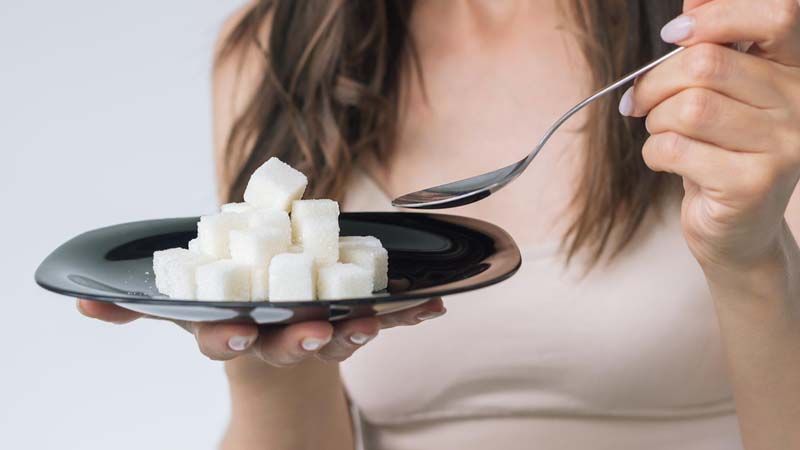Magical Basil/Sabja Seeds Health Benefits that You Can't Ignore
- 47 months ago
Ever had falooda? Noticed those tiny, round, fish egg structured balls in it? If not we are sure next time you will. Well those are Basil seeds. Seeds that are not just meant to be buried but are to be eaten.
Basil seeds are likely local to India and are broadly used as a kitchen spice or herb. Also known as sweet basil, falooda seeds, sabja seeds, or turkmaria seeds are black and tear-shaped seeds. They are from the same mint family of Holy Tulsi but different from it. Some people also confuse it with Chia Seeds but that’s not the case.
These seeds are rich in proteins, carbs, essential fats, antioxidants and are packed with a good deal of fiber. They are considered a cure to many things as they are loaded with antiviral, antibacterial and immunity-boosting properties.Did you know? There are only 40 calories in two teaspoons of Basil seeds but the advantages one would get from the magical seeds are huge.

Health Perks You Can Enjoy if You Consume Sabja Seeds Are-
Sabja Seeds Benefits for Skin
Sabja seeds are stacked with flavonoids that help in improving the skin health and revive the development of new cells.
Sabja Seeds Benefits for Hair
Basil seeds are rich in antioxidants and help in the creation of hair, prevents stress on the scalp and minimizes the chances of untimely baldness.
Sabja Seeds Benefits for Weight loss
These seeds have anti-inflammatory properties which means their oil components will ensure that you stay fueled for a long time. Eventually, you’ll take less calories.
Sabja Seeds Benefits for Kidney
Sabja seeds are known for diuretic properties that can weed out toxins, hence purifying kidneys. It balances stomach acids and calms the internal lining of the stomach.
Sabja juice is also believed to provide relief in Kidney stones.Take two teaspoons of basil seeds, add in water and drink regularly everyday.
Reduces risk of heart diseases and type 2 diabetes
Just 1 tablespoon of sabja seeds has the capacity to supply most of your need for ALA omega-3 fat that you need on a daily basis.
Other Amazing Benefits of Basil Seeds to Take a Note of-
a. Reduces body heat
b. Reduces stress
c. Controls blood sugar levels
d. Relieves constipation and bloating
e. Strengthens bones and muscles
Also Used as Flavor and Seasoning
Adding these seeds to a variety of dishes will not only enhance the taste and flavor of food but will also enhance its nutritive value. They are great as a garnish for drinks and desserts. Blended in lemonade or sprinkled over kulfi, they impart their own fresh touch. You can also munch on these seeds as a low-calorie snacking alternative or add it to soups for a crunchy feel.
Frequently Asked Questions
Q. How to Use Sabja Seeds?
Ans. - Sabja seeds can can be consumed raw (dry).For best results to soak basil seeds in one cup of warm water for about 15 minute.
Q. How Sabja Seeds Taste Like?
Ans. - They taste neutral, no distinct taste.
Q. Where to Use Sabja Seeds?
Ans. - These seeds do not really have a distinct taste and can be added to a varity of dishes, drinks , and desserts. Popularly used in Falloda, Rooh Afza, Nimbu Sharbat or any kind of milkshakes
Q. Can I Take Sabja Seeds During Pregnancy?
Ans. - Pregnant women should avoid eating basil seeds.
Q. Can I give Sabja Seeds to My 1 Year Baby?
Ans. - Avoid giving it to your child. If you are looking for nutritional diet for your infant or child. You must read our infant food guide and Recipes For 5- 9 Months Infants.
Q. Where to Buy Sabja Seeds From?
Ans. - These are easily available at your local grocery shop or you can buy it online from amazon
Q. What is the Cost of Basil Seeds/Sabja Seeds?
Ans. - Generally the price varies from ₹180-250 per 500 gram.
Q. How Much Sabja Seeds Should I Consume Daily?
Ans. - One should consume 1-2 teaspoons daily. If you are health conscious, you can consult with an expert dietician online for better management of health.
Include Basil seeds in your regular diet for quicker results and download The Wellness Corner app for regular health updates.









